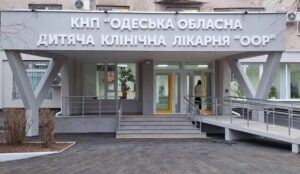
According to Serbian Economist, the Italian manufacturer of automotive components and electric cars Tazzari is considering the possibility of investing in Serbia and plans to start investing as early as 2026, Deputy Prime Minister and Minister of Economy Adrijana Mesarovic said in Bologna.
According to her, representatives of the company will come to Serbia in the next 15 days to continue negotiations. The minister also said that the company produces cast aluminum parts for engines, and among its clients are Ducati, Lamborghini, Maserati and Ferrari.
Mesarovic added that Tazzari is interested in conditions of access to foreign markets, including free trade agreements that Serbia has concluded with a number of countries.
Tazzari Group was founded in 1963 and specializes in aluminum casting technologies and supply of lightweight components for the automotive and motorcycle industries; the group is also developing its own lightweight electric vehicles (Tazzari Zero project).
https://t.me/relocationrs/2214

In January-November 2025, Ukraine imported 44.18 thousand tons of coffee and 10.21 thousand tons of tea, which is 0.6% and 13.3% less than in the same period of 2024, according to the State Customs Service.
According to published statistics, in monetary terms, coffee imports increased by 39.2% to $352.18 million compared to $252.97 million for the same period a year earlier.
The main suppliers of coffee to Ukraine in the first 11 months of this year were Poland, which accounted for 15.5% of imports, or $54.67 million in monetary terms, Germany – 13.1% and $46.24 million, and Italy – 11.9% and $41.86 million.
A year earlier, the top three coffee suppliers to Ukraine for the corresponding period remained unchanged, except for their share in supplies: Poland (16.2%, $41.07 million), Italy (15.3%, $38.63 million), and Germany (13.1%, $33.09 million).
Tea imports during January-November 2025 decreased by 11.9% in monetary terms, to $38.92 million, compared to $44.19 million last year.
At the same time, the top three tea suppliers to Ukraine for the first 11 months of this year remained unchanged: Sri Lanka (30.3% or $11.8 million), Kenya (17.6% or $6.86 million), and China (12.5% or $4.85 million). Last year, these countries accounted for 31.6%, 20.1%, and 10.8% of the market, with tea supplies to Ukraine bringing them $13.96 million, $8.87 million, and $4.791 million, respectively.

For the first time in 2025, a separate annual quota for the supply of 30,000 tons of Ukrainian flour to the European Union has been granted, which opens up opportunities for long-term planning for the domestic flour milling business, said Rodion Rybchinsky, director of the Ukrainian Flour Millers Association.
“The top 10 export-oriented companies have already invested around EUR 17 million in modernization and now understand that these investments will have prospects,” he said at the “Agribusiness in Ukraine” conference in Kyiv on Thursday.
He recalled that until 2022, flour was exported within the joint quota with wheat. Flour millers usually did not have time to deliver their products to the EU, as grain traders were the first to choose the quota. Only after the opening of trade preferences in 2022 did Ukrainian flour begin to actively enter the EU market, and in 2023, flour exports to EU countries amounted to 73,000 tons.
“These volumes became an argument in the negotiations: if 73,000 tons were successfully delivered to the EU, the question of Ukrainian flour’s non-compliance with European quality requirements would be moot,” said Rybchynskyi.
According to him, Ukrainian flour is now available in Germany, the Czech Republic, Spain, and Italy, which is clear proof of the high quality of Ukrainian products.
Rybchynskyi noted that during the 11 months of 2025, Ukraine supplied 26,000 tons of this product to the EU, so by the end of the year, domestic producers will be able to fully use the quota. At the same time, the biggest problem for flour millers in 2026, if we assess the prospects of the industry, will be the labor shortage.
He named the European Millers’ Congress in France as one of the most anticipated events in the industry next year, during which the Ukrainian side will try to find arguments and establish contact, in particular, with the Romanian Association of Flour Producers, as well as try to lay the groundwork for a review of quotas in 2028. According to Rybchynsky’s estimates, Ukraine is capable of supplying 300,000 tons of flour to the EU market.

Italy will provide €30 million for the restoration of the Odesa Children’s Hospital.
According to the Italian Embassy, the agreement was signed by Italian Ambassador Carlo Formosa and Deputy Prime Minister for the Restoration of Ukraine Oleksiy Kuleba during the first Italian Cooperation Day in Ukraine in Kyiv.
The project involves the construction of a new modern pediatric complex with 260 additional beds, which will provide medical care to children in the region and make the hospital a leading center for the entire south of Ukraine.
In total, Italy’s patronage of Odessa, amounting to more than €93 million, is directed toward projects in the fields of healthcare, agriculture, and cultural heritage preservation.
In addition, as part of the Second Emergency Initiative implemented by the Italian Agency for Development Cooperation (AICS), €45 million has been allocated for humanitarian projects.
“The new Odessa Children’s Hospital is an investment in the future generations of Ukraine, in those who have suffered most unjustly from this terrible war,” said Italian Ambassador to Ukraine Carlo Formosa.
He noted that since the start of the full-scale invasion, Italy has supported 90 Ukrainian hospitals, provided assistance to 140,000 medical workers, and contributed to the restoration of 120 schools.

Ukraine has been increasing its flax exports for the fourth month in a row amid active demand from exporters. Exports in October amounted to 7.65 thousand tons, which is 26% more than in September this year, according to the information and analytical agency APK-Inform.
Analysts noted that the main buyers of flax are EU countries. In October, 43.1% of supplies were purchased by France, 16.8% by Poland, and 11.4% by Italy.
“The increase in flax exports began in July this year, when the active phase of harvesting this crop began. Thus, flax exports in July were recorded at 1.37 thousand tons, and in August at 3.3 thousand tons,” the experts noted.
A sufficient supply of flax is pushing buyers to lower prices. Thus, the maximum demand prices for flax in Ukrainian ports fell by UAH 800/ton over the month and, as of November 6, usually do not exceed UAH 28,500/ton CPT port, according to APK-Inform.

Italian Deputy Prime Minister and Foreign Minister Antonio Tajani said that Italy intends to submit a proposal to the United Nations for a general ceasefire during the 2026 Winter Olympics in Milan and Cortina d’Ampezzo.
According to ANSA, the initiative will cover all armed conflicts, including the war in Ukraine and hostilities in the Middle East.
“We support the US plan (for Gaza) and, as Pope Leo said, we must never lose hope for peace. Rome and Italy are becoming increasingly important crossroads of peace, development, and growth. In view of the Olympic Games in Milan and Cortina d’Ampezzo, we are submitting a proposal to the UN for an Olympic truce for all wars, including Ukraine and the Middle East,” said the Italian Foreign Minister.
The XXV Winter Olympic Games will be held in Italy from February 6 to 22, 2026.
These are the first Olympic Games to be hosted by two cities at the same time — Milan and Cortina d’Ampezzo.
According to Olympic tradition, host countries often appeal to the UN with an “Olympic Truce” initiative, calling on world powers to cease military action during the Games in the spirit of international unity and peace.
Italy expects its proposal to be considered by the UN General Assembly in the near future.
GAZA STRIP, ITALY, OLYMPICS, truce, UN